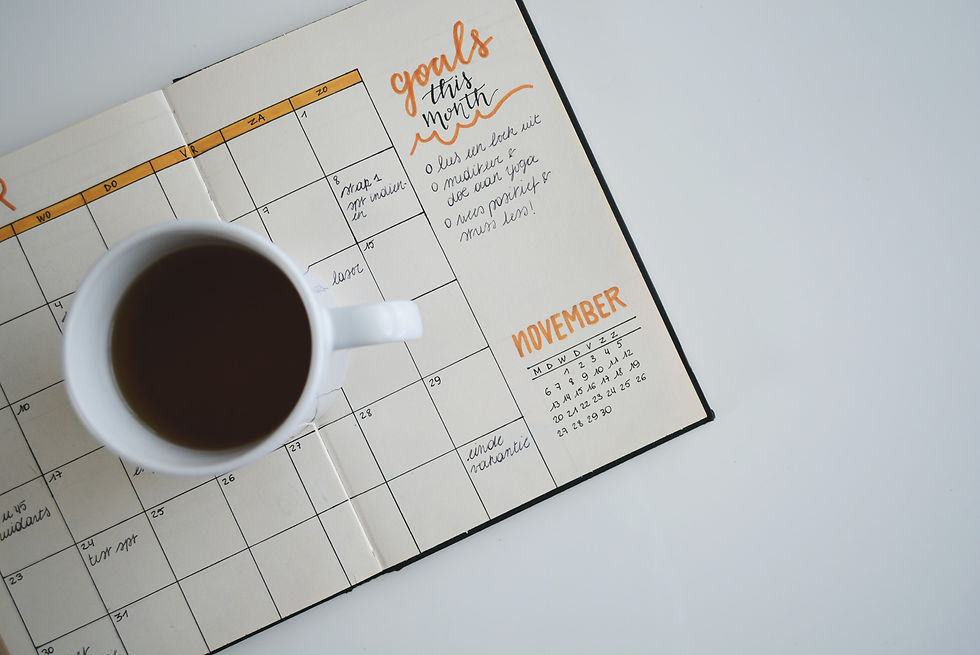How to make the MOST of CLINICS
- Eeshah Nasir

- Jan 21, 2021
- 4 min read
Every medical student waits eagerly for the third year to start. This is because whatever they have learned throughout first- and second-year is put to test in a practical form in clinics. Everyone sets out to get a stethoscope and scrubs excitedly because from henceforth, bookish knowledge will only take you so far.
Clinical years are extremely fun, especially if you have been wanting to be a doctor for so long. For some, it might be daunting while others may welcome the challenge. This piece caters to people in both these categories to allow everyone to make the most out of clinics.
I, myself, am a third-year student so I am in the same boat as the target audience of this article but, I did my research, asked a lot of seniors, and thus, here is a compilation of whatever it is that we need to know about clinics to maximize our experience.
Pay attention in lectures

Before going off to the wards, OT or OPDs, whatever it is that the doctors teach you in class, pay attention to it and try to retain most of it. By this time, you have probably figured out what kind of a learner you are (if not, you can always find out through a short quiz: http://www.educationplanner.org/students/self-assessments/learning-styles-quiz.shtml). Make sure you use this to the best of your ability, make notes of whatever it is that the teacher is saying (do not just depend on slides)! Whatever you write down yourself tends to stay with you. Make sure to watch videos on how to conduct physical examinations to clear it up, especially if you are a visual learner (seniors suggest watching Geeky Medics’ videos). After watching videos, I also suggest using a clinical textbook (either Macleod’s or Hutchison’s) to go over the same. This will allow you to brush up on your clinical skills.
Do things YOURSELF

When you go to the wards, there is a tendency among students to just watch other people take histories or conduct physical examinations. While watching others is helpful, you really will not get the hang of it unless you do it yourself! Remember you will have to do it in front of the doctors on the OSCE/ viva day, so it is better to practice it from the start. There is no harm in asking teachers if they will let you have a go at whatever it is that you are learning, they will rarely say no! If you do not get a chance to practice in the wards, you can always practice on your family and friends. Just keep it professional and explain to them the procedure that you will conduct just like you would with a patient and take it from there.
Read up on your patients

The patients that you are introduced to are being exposed to you for a reason. Read up on their conditions and complications and do not be afraid to ask questions! The doctors around will help you out. Go through the files of the patient to satisfy your curiosity further. See what tests have been ordered and try and reach conclusions with the results. Tally your conclusions with a doctor or PG. This will allow you to never forget a case because once you have seen it yourself, you tend to remember. If you come across a disease that you have not heard of before, you can use the Oxford Clinical Handbook to look it up and find out about it.
Take PBLs seriously

The PBLs that we do are also describing patients and clinical presentations of disease. We can correlate our PBLs to real cases and see the similarities or differences. There can be many different ways in which the same disease presents. If you actively participate in the PBL and do your research, you are more likely to remember a case. This will help you even more in the fourth and fifth year when doctors stop giving you as much leeway and expect the knowledge to be at your fingertips.
Refer to the books

Always go back to the books that the doctors or seniors recommend (most of these can be found in the clinical handbook given at the start of the year). Download the PDF versions and give the books a read. Select the ones you feel comfortable reading from and get hard copies of those books only. Read up on cases that you see in the hospital. This way, you will get a more thorough overlook of the case. Books are imperative because they are the materials used to make the end of rotation tests. Look at the pictures in these books especially. These are important.
Clinics are a lot of fun if you allow yourself to make the most out of them. This is the time where you lay the foundation of the type of doctor you want to be, thus, make sure that this base is rock solid. Allow yourself to have some time off between tackling neurology and clinics because that will maximize efficiency. Currently, some rotations are online which allows one to slack off but being on top of everything and taking an interest will take you a long way. Good luck!








Comments